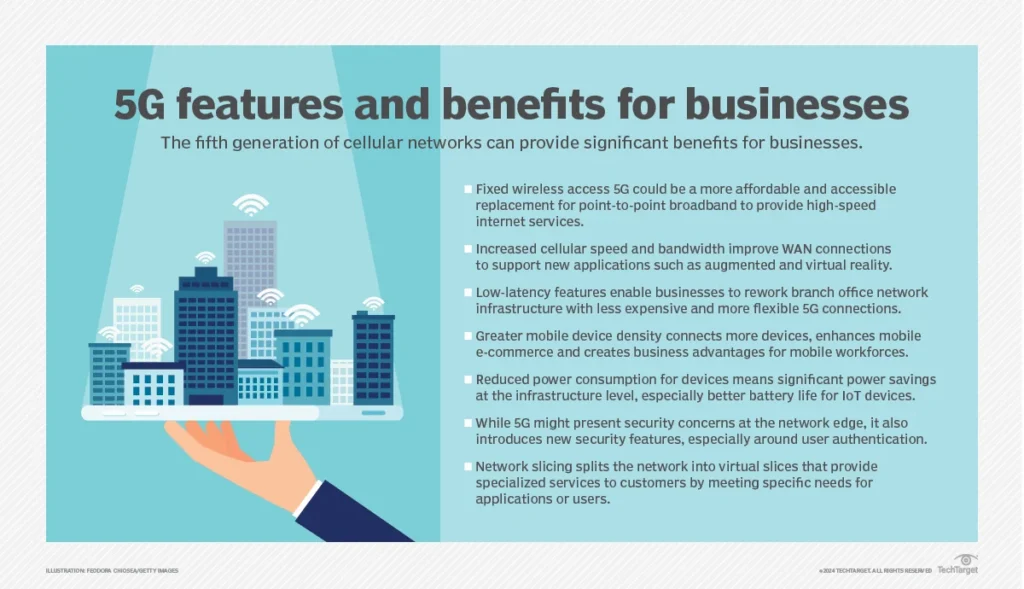The emergence of 5G technology has brought significant changes to the way consumers and businesses interact with the digital world. 5G technology, the fifth generation of wireless technology, promises faster internet speeds, lower latency, and the ability to connect more devices simultaneously. This advancement in connectivity will have a profound impact on various industries, including healthcare, transportation, and manufacturing, as well as on consumer experiences such as augmented reality and virtual reality. The potential of 5G technology to revolutionize communication and connectivity is generating significant interest among consumers and businesses alike. As the roll-out of 5G technology continues to expand, it is essential for both consumers and businesses to understand the implications and opportunities it presents.
1. What is 5G Technology?
5G technology is the fifth generation of mobile network technology, succeeding 4G. It is designed to provide faster and more reliable communication, with significantly lower latency and higher data rates. 5G technology uses a combination of advanced antenna technology and higher frequency bands to deliver these improvements, making it a significant leap forward in mobile communication capabilities.
One of the key features of 5G technology is its ability to support a massive number of connected devices, making it ideal for the growing Internet of Things (IoT) ecosystem. This means that 5G has the potential to power a wide range of applications, from smart cities and autonomous vehicles to virtual reality and augmented reality experiences.
2. Benefits for Consumers
For consumers, 5G technology promises significantly faster download and upload speeds, making activities such as streaming high-definition video, online gaming, and video calls much smoother and more reliable. The lower latency of 5G technology also means that users will experience minimal delay when interacting with online applications and services, leading to a more responsive and immersive experience.
Additionally, the increased capacity of 5G networks means that users in densely populated areas will experience less congestion and more consistent performance, even during peak usage times. This will lead to a more reliable and enjoyable mobile connectivity experience for consumers in urban areas.
3. Impact on Businesses
5G technology has the potential to revolutionize the way businesses operate, enabling new opportunities for innovation and efficiency. The faster and more reliable connectivity provided by 5G networks can power advanced technologies such as augmented reality (AR), virtual reality (VR), and artificial intelligence (AI), opening up new possibilities for immersive customer experiences and streamlined business operations.
Furthermore, 5G technology can enable the widespread adoption of IoT devices and sensors, allowing businesses to gather and analyze data in real time to make more informed decisions and improve their processes. This can lead to increased automation, improved resource management, and enhanced productivity across a wide range of industries.
4. Enhanced Connectivity and Mobility
5G technology is expected to bring about a new era of enhanced connectivity and mobility, as it will enable seamless communication between a wide range of devices, including smartphones, tablets, wearables, and IoT devices. This will lead to a more integrated and interconnected digital ecosystem, where devices can communicate and collaborate in real time to provide personalized and context-aware experiences for users.
Additionally, 5G technology is poised to transform the way people and goods are transported, as it can support the development of autonomous vehicles and advanced transportation systems. This has the potential to improve road safety, reduce traffic congestion, and create more efficient and sustainable transportation networks.
5. Potential for Innovation
5G technology is expected to drive a wave of innovation across various industries, as it will enable the development of new applications and services that were not feasible with previous generations of mobile technology. From healthcare and education to entertainment and manufacturing, 5G has the potential to unlock new possibilities and reshape the way businesses and consumers interact with technology.
For example, the low latency and high bandwidth of 5G networks can enable real-time remote surgical procedures, immersive virtual classrooms, and advanced manufacturing processes that rely on real-time data analytics and automation. This opens up new frontiers for innovation and creativity, with the potential to transform entire industries.
6. Security and Privacy Considerations
As with any new technology, the rollout of 5G networks raises important considerations around security and privacy. With the increased connectivity and data exchange enabled by 5G technology, there is a need for robust security measures to protect against potential cyber threats and unauthorized access to sensitive information.
Additionally, the vast amount of data generated by 5G-connected devices and sensors raises questions about data privacy and ownership. It will be important for businesses and consumers to carefully consider and address these concerns as they embrace the potential of 5G technology, and for policymakers to establish clear regulations and standards to safeguard privacy and security in the 5G era.
7. Deployment and Infrastructure Challenges
The widespread adoption of 5G technology presents significant deployment and infrastructure challenges, as it requires a dense network of small cell sites and upgraded infrastructure to support the higher frequency bands used by 5G networks. This will necessitate substantial investments in network infrastructure and coordination with local governments and regulatory bodies to ensure the smooth rollout of 5G networks.
Furthermore, the deployment of 5G networks in rural and underserved areas may present additional challenges, as the cost of infrastructure upgrades and the lower population density in these areas may make it less economically viable for network operators. Addressing these deployment challenges will be crucial to ensure that the benefits of 5G technology are accessible to all communities.
8. Future Outlook and Potential Applications
Looking ahead, 5G technology holds the potential to transform the way we live, work, and interact with the world around us. From smart cities and connected infrastructure to personalized healthcare and immersive entertainment, the impact of 5G technology will be far-reaching and transformative. As the technology continues to mature and evolve, we can expect to see a wave of new applications and services that harness the full capabilities of 5G networks, shaping the future of connectivity and innovation.
With ongoing advancements in 5G technology and the continued collaboration between industry stakeholders, policymakers, and innovators, we can anticipate a future where 5G networks empower a new era of connectivity, productivity, and creativity, unlocking new opportunities and possibilities for consumers and businesses alike.
| Consumers | Businesses | |
|---|---|---|
| Speed | Ultra-fast download and upload speeds for streaming and downloading content. | Increased efficiency and productivity through faster data transfer and communication. |
| Latency | Low latency for real-time gaming and virtual reality experiences. | Improved response times for remote operations and IoT devices. |
| Connectivity | Support for more connected devices and seamless connectivity in crowded areas. | Opportunities for innovation and new business models with interconnected systems. |
| Impact | Enhanced user experiences and potential for new applications and services. | Transformation of industries and potential for automation and digitalization. |
5G Technology: What It Means for Consumers and Businesses
5G technology promises to revolutionize the way consumers and businesses access and utilize wireless connectivity. With its ultra-fast speeds, low latency, and increased connectivity, 5G has the potential to enhance user experiences, drive innovation, and transform industries. Consumers can expect faster and more reliable internet access, while businesses can explore new opportunities for efficiency, productivity, and interconnected systems. Overall, 5G technology has the potential to significantly impact both consumer and business landscapes.



